2019 offered a blistering catalog of books to peruse, on top of the prodigious publishing schedules of the past few years (if you think we are at Peak TV, you might want to check out your local bookstore for a counterpoint).
We already checked in with Extra Crunch readers and did a sort of reader’s choice selection of their twelve favorites, but I also asked our TechCrunch editorial staff about what they read this year and would recommend. Perhaps unsurprisingly, they came back with a mix of books (and audiobooks!) on tech, startups, biographies, graphic novels, and true crime fiction like the proper nerds we all are over here.
The criteria was that the book had to be read in 2019, but didn’t necessarily have to be published this calendar year. In part, that’s because books that may not have been all that interesting in the past suddenly got their turn in the spotlight for whatever reasons (headlines, viral influencer recommendations on Goop, or what have you).
In short, here are eleven writers at TechCrunch and the thirteen books that made the largest impact on them, any one of which would make a great gift for that techno-geek friend of yours.
This article contains links to affiliate partners where available. When you buy through these links, TechCrunch may earn an affiliate commission.
Zack Whittaker
Sandworm: A New Era Of Cyberwar And The Hunt For The Kremlin’s Most Dangerous Hackers by Andy Greenberg
Doubleday / 368 pages / November 2019
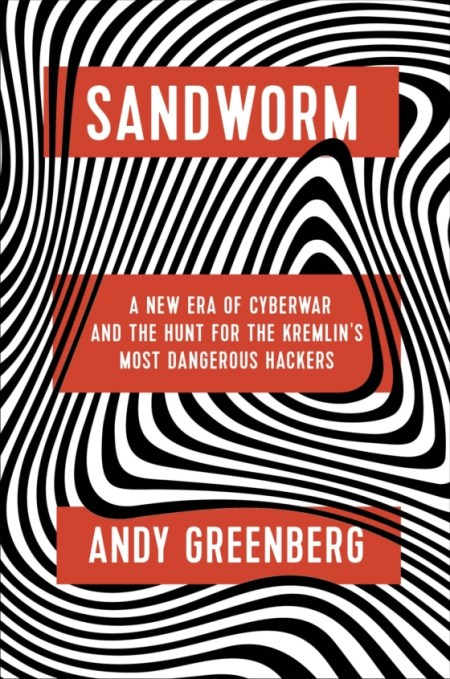
Zack has long covered the daily breaches, cybersecurity hacks, and other data leaks that plague our world today (just last month: hacks at Macy’s and Magic: the Gathering). So perhaps unsurprisingly, his favorite book of the year was about none other than Russian hackers:
Andy Greenberg’s latest book on Sandworm, the group of Russian hackers blamed for the most disruptive cyberattack in history, is a real page-turner. Greenberg’s Sandworm is a gripping tale of the group’s discovery and their attacks, from shutting off the electric grids in Eastern Europe to the spread of the NotPetya ransomware attack, which froze hospitals, railways, and ATMs. Although written for the layperson, it’s detailed enough to satisfy any expert, and the use of first person draws in the reader to the story’s narrative. This incredibly detailed detective-style book — leaving no stone unturned — and the refreshing addition of footnotes — is a must-read for anyone interested cybersecurity.
Andy Greenberg himself has long covered security and hacking, and is currently a senior writer at Wired. This is his second book, following publication of This Machine Kills Secrets in 2012 about Julian Assange.
Price: $27 on Amazon
Sarah Perez
The Baddest Bitch in the Room by Sophia Chang
Audible Original by Hello Sunshine / 8 hours / September 2019

Sarah has long taken a deep view into the world of mobile and apps (among a huge host of other topics), but her favorite audiobook this year comes from a behind-the-scenes player in the music industry who carefully puts herself out into the spotlight:
You don’t have to be a huge hip-hop fan to love Sophia Chang’s new memoir, but her Audible Original does include some impressive name-dropping. A music industry veteran, Chang managed rap and R&B stars like the Wu-Tang Clan’s RZA, GZA, and ODB, as well as A Tribe Called Quest, Raphael Saadiq and D’Angelo.
But her story is more than a music industry retrospective. Chang is also the fiercely independent child of Korean immigrants who left Vancouver for New York, as well as a woman who fell in love with a Shaolin monk, learned kung fu, shaved her head to shred stereotypes of Asian women, and became a mother, all while working her way up in her career.
In her self-narrated memoir (which includes some 24 guest appearances!), she steps into the limelight after a life spent behind the scenes helping talented artists tell their stories. She’s smart, funny, and inspirational — and someone, as her story shows, who has really earned the title “baddest bitch.”
Price: Available as part of an Audible subscription
Walter Thompson
Testosterone: An Unauthorized Biography by Rebecca M. Jordan-Young and Katrina Karkazis
Harvard University Press / 288 pages / October 2019
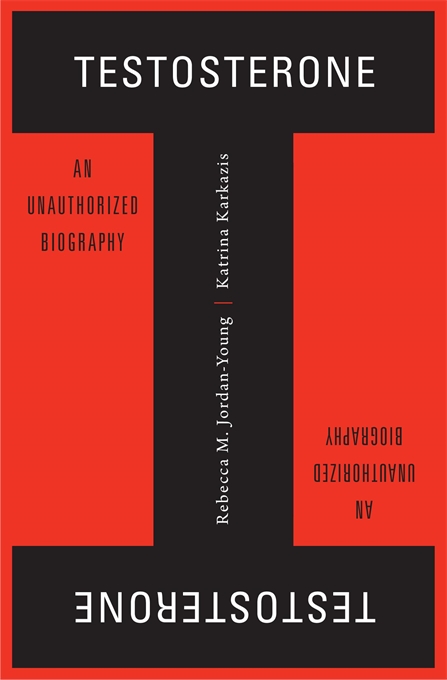
Heading in the other direction a bit, our new senior editor at Extra Crunch Walter Thompson recommends a “biography” of a well-known but surprisingly misunderstood steroid that is getting its own time in the limelight:
Written by a sociomedical scientist and a cultural anthropologist, the book explodes many of the common myths surrounding the hormone erroneously associated with male virility and masculinity. Jordan-Young and Karkazis delve into science and history to explain how testosterone has been generally misrepresented by popular culture and the medical industry by exploring how ’T’ impacts aggression, reproduction, power, parenting, sports and risk-taking.
Given the increasing attention to these issues, the book’s auspicious timing and deeply researched foundations are already having a huge effect on an important cultural conversation today.
Price: $22 on Amazon
Josh Constine
SAGA: Compendium One by writer Brian K Vaughan and artist Fiona Staples
Image Comics / 1,328 pages / August 2019
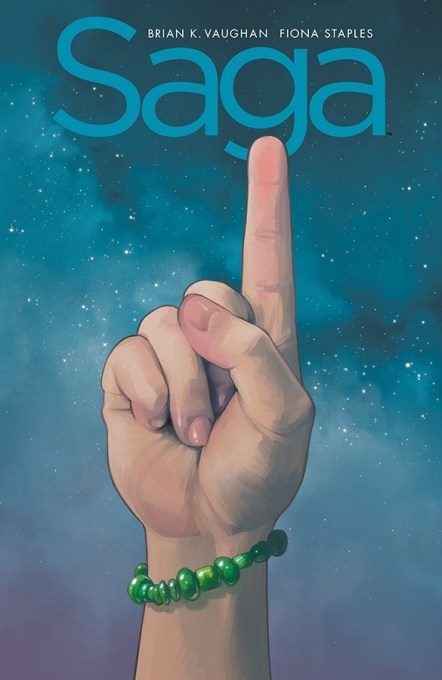
One of Josh’s book recommendations for 2019 is a graphic novel that is expansive in scope (as one would hope for a paperback that runs for more than a 1,000 pages):
Possibly the greatest non-superhero action graphic novel, this is a tale of star-crossed lovers from different planets trying to raise their child amidst an intergalactic war. The imaginative inventions, gorgeously colorful artwork, and mix of laser fights and suspenseful drama will transport you. The paperback is a great way to entertain yourself without staring at a screen (though it’s available on Comixology’s app too).
Price: $43 on Amazon
AI Superpowers: China, Silicon Valley, and the New World Order by Kai-Fu Lee
Houghton Mifflin Harcourt / 272 pages / September 2018
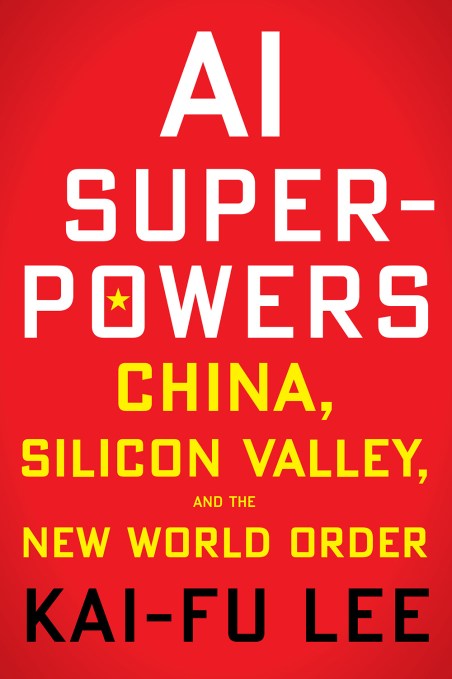
Josh has been a prolific reporter and critic of social network and media companies like Facebook and Twitter. These days, though, there is a new social network that is garnering outsized attention: Tik Tok. Josh has been covering the company and its predecessor Musical.ly for years, and has also been writing about how Facebook should confront this new competitive threat. So perhaps it’s no surprise that Josh’s first recommendation is for a book that addresses precisely the rise of Chinese-owned apps and the fight for the future of artificial intelligence:
If you want to understand how artificial intelligence is going to impact employment and geopolitics, this is a must read from the former head of Google China. It recounts wild stories of tech startup competition and the rise of the ecosystem in the country, and explores why every country but the US and China have hard times ahead.
AI Superpowers was also the most recommended book by Extra Crunch readers in our survey, and also a book I can personally endorse as well (thanks Josh for stealing my recommendation).
Price: $13 on Amazon
Danny Crichton (i.e. yours truly)
Imperial Twilight: The Opium War and the End of China’s Last Golden Age by Stephen R. Platt
Knopf / 592 pages / May 2018
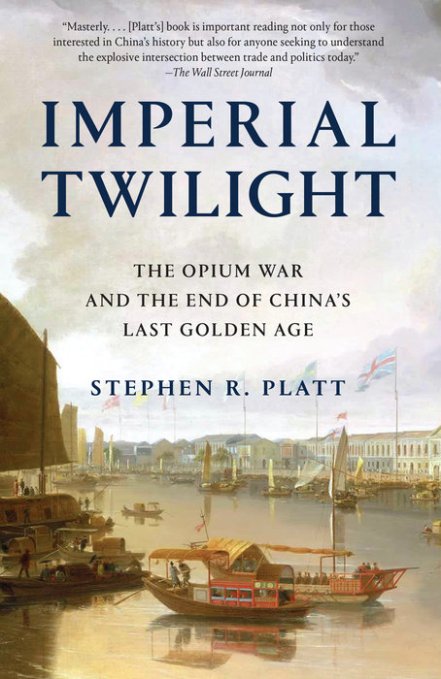
Speaking of China, the trade war continues unabated between the U.S. and the Middle Kingdom. Whereas AI Superpowers focuses on the present and future, Stephen Platt’s Imperial Twilight rewinds us back in time to the era of the Opium War, when Western forces led by a fascinating cast of characters from Britain, the U.S., and elsewhere used trade as a tool to force open China’s borders, popularize a heavily addictive drug among its people, and engorged on capital flows out of the country in a raw moment of pure political power against an incredibly weakened Qing dynasty.
The book is one of those works that every publisher wants to have in their catalog, complete with an extraordinarily well-written narrative, a deeply textured and nuanced look at a key historical event, and a perfectly timed publication date pegged to one of the most topical news stories of the year. In short, it’s a smash hit.
Price: $11 on Amazon
Catherine Shu
Continuing this China theme a bit, Catherine has covered tech developments in Asia for years (actually, seven with us as of yesterday) from her perch in Taiwan. But she also has interests outside of the latest new startups, and that includes true crime fiction. She writes:
I’ve been a fan of true crime since I was a teenager, but over the last year, I have become uneasy about my attachment to the genre. To be blunt, a lot of books and podcasts are fueled by voyeurism, and I am not comfortable with being culpable in the transformation of tragedy into entertainment. So I welcome new books that take a step back and examine famous cases within their cultural context.
The Five: The Untold Lives of the Women Killed by Jack the Ripper by Hallie Rubenhold
Doubleday / 432 pages / February 2019

Catherine’s first recommendation flips the lens on one of the most well-known serial murderers in history:
“The Five” by Hallie Rubenhold is probably the first book to comprehensively document the lives of Jack the Ripper’s victims. Rubenhold’s research uncovered myths about the women, including that not all were prostitutes, a misconception that started with contemporary police and press reports (and may ultimately have hindered the investigation), but continues to be perpetuated by the industry that has grown around the murders.
Rubenhold did an enormous amount of research, but ultimately the book’s impact comes from the very simple but powerful act of restoring these five women’s humanity — an admirable feat considering that their violent murders have been commodified and romanticized for over a century.
Price: $12 on Amazon
The Trial of Lizzie Borden by Cara Robertson
Simon & Schuster / 400 pages / March 2019
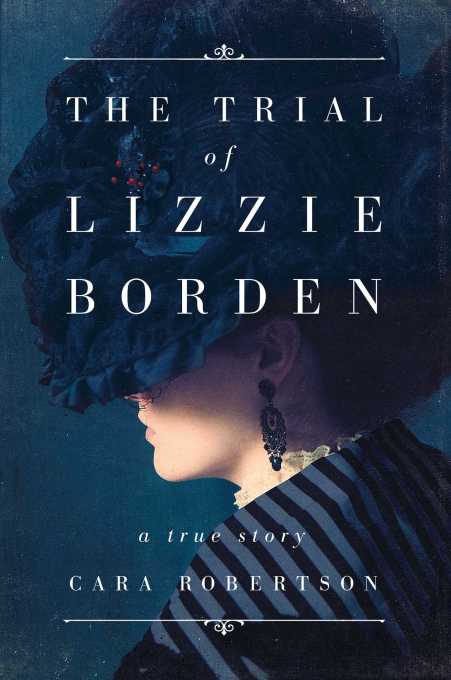
Meanwhile, her second recommendation takes a more expansive view of a famous axe murder case than has traditionally been the norm in the real crime genre:
“The Trial of Lizzie Borden” by Cara Robertson is one of the best books about the case I’ve read (and I’ve read a lot). In addition to providing an exhaustive but extremely compelling account of the legal proceedings that concluded in Lizzie Borden’s acquittal, Robertson, a lawyer, also analyzes the case as an example of contemporary attitudes toward gender, class, and criminality.
Her examination of newspaper accounts reveals how the case almost immediately became a media sensation and also that many of the trial’s spectators were dismissed as “a crowd of morbid females” by one reporter — a misogynistic label that continues to be attached to true crime fans, many of whom are women.
Price: $14 on Amazon
Devin Coldewey
Digital Apollo: Human and Machine in Spaceflight by David A. Mindell
MIT Press / 376 pages / April 2008
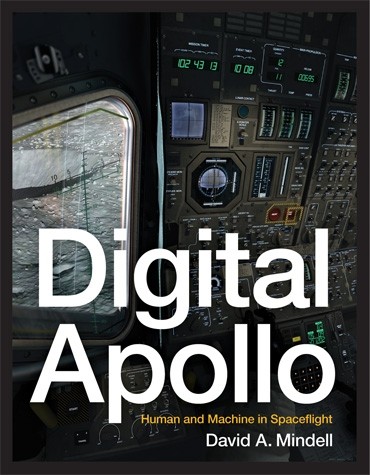
Devin has had long-standing interests in space, artificial intelligence, high-performance computing, and other hard science and tech subjects. His recommendation this year is a classic of the genre written by David Mindell, a long-time MIT professor of engineering history who also is founder of the startup Humatics, which has raised some serious venture capital dollars to make location detection inside of buildings (think robots in factories) a reality. On Digital Apollo, Devin says:
The 50th anniversary of Apollo 11 is a great opportunity to learn about one of the program’s most fascinating aspects: the computers that ran it. But Digital Apollo is far more than some survey of early computing hardware. Mindell documents the fascinating people and processes behind the creation of this unprecedented system. Stubborn astronauts, idealistic engineers, and skeptical officials face off while the hard deadline looms, making this an interesting and inclusive story as well as a highly informed history.
Not only is it a great story, it’s one that will be recognizable to any engineer that has ever had to ship product while dealing with other humans.
Price: $21 on Amazon
Kirsten Korosec
Traffic: Why We Drive the Way We Do (and What It Says About Us) by Tom Vanderbilt
Knopf / 416 pages / July 2008
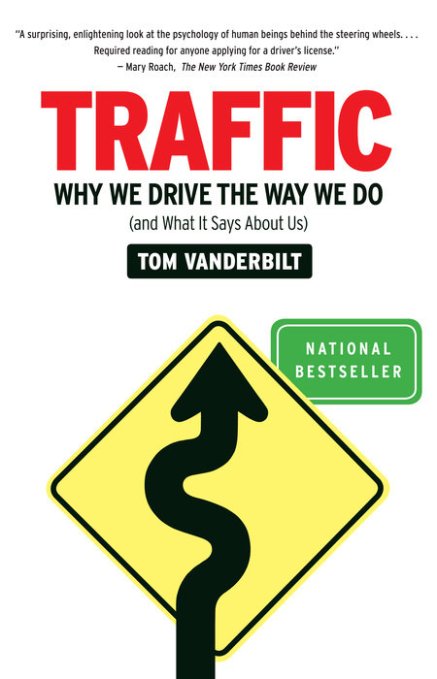
Kirsten has vigorously reported on the transportation sector (you should sign up for her weekly transportation newsletter The Station), including the rise of companies like Tesla and whole new categories of startups like self-driving cars and scooters. Yet despite all the futurism in the industry, she wanted to take a step back in her recommendation to a book that discusses some of the first principles that ‘drive’ mobility in the first place:
This book is a decade old and yet it’s more relevant than ever before as our cities become more dense and we look for ways out of the congestion. If you want to understand opportunities and challenges for automakers, cities, and even startups around mobility, start here.
With Traffic, Vanderbilt’s goal is to show that humans have cognitive limits, and those limits have a direct effect on our traffic systems and the designs of our mobility products. As we increasingly enter a world of human/AI hybrid cars and people speeding rapidly down Market Street on rickety scooters, his book offers us a panorama view of just how hard it it to get mobility right and make it safe.
Price: $13 on Amazon
Matt Burns
Billy, Alfred, and General Motors: The Story of Two Unique Men, a Legendary Company, and a Remarkable Time in American History by William Pelfrey
AMACOM / 336 pages / March 2006

Among our longest tenured editors, Matt Burns has been writing about automotive topics among others for more than a decade here. He brings us a book about one of the most storied companies (positively and negatively) in American history:
This is the story of General Motors and how a successful carriage maker purchased the Buick name and turned it into the largest automaker in history.
And then how Billy Durant ran the company into the ground and lost control.
So what did Billy Durant do? He founded another company, Chevrolet, the only car to ever be manufactured in New York City, and used wild stock manipulation to regain control of General Motors. And then he lost control again and ended up managing a bowling alley in Flint, MI until he died nearly broke.
Meanwhile, there’s Alfred Sloan, a methodical manager of an auto supply company who took over General Motors, devised the yearly model update and eventually wrote the book on managing corporations.
The story of Billy Durant founding General Motors resonates today. It’s the story of a wild entrepreneur who’s vision and command of the stock market led to the creation of a mega corporation but who lacked the management skills to scale. The book details his incredible rise and fall through vivid stories and first-hand accounts found in Durant’s unpublished autobiography.
Price: $17 on Amazon
Darrell Etherington
Super Pumped: The Battle for Uber by Mike Isaac
W. W. Norton & Company / 408 pages / September 2019

Darrell has chronicled the tech industry for many years (picking up a theme here?) and has picked a chronicle of a tech industry luminary which has since lost much of its luster:
This account mostly focuses on Uber founder Travis Kalanick, from his pre-Uber entrepreneurial formative years, right through the corporate power struggle that led to his ousting in 2017.
What I especially enjoyed about it was its depiction of Bill Gurley – an interesting counter-positioning of this Silicon Valley legend with Kalanick’s foil that may or may not match your understanding of the real story, depending on who you hear it from.
If you had to pick the “startup profile book of the year award,” Super Pumped would almost certainly take the crown this year. The book was also recommended pretty heavily by Extra Crunch readers in our survey as well, although it didn’t quite make the cut.
Price: $19 on Amazon
Manish Singh
Big Billion Startup – The Untold Flipkart Story by Mihir Dalal
Pan Macmillan India / 320 pages / October 2019
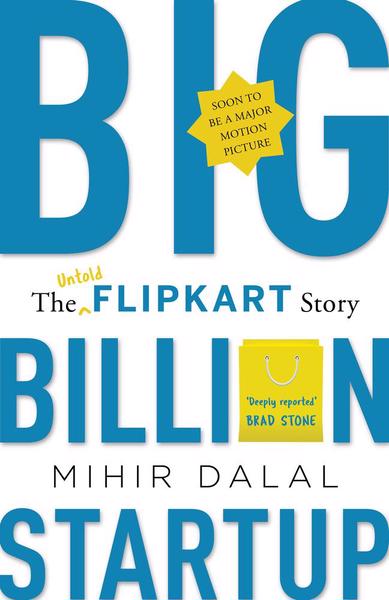
Manish joined us relatively recently to expand our tech coverage more heavily in India, where the startup and entrepreneurial ecosystem has been exploding crazy fast the past decade plus. Perhaps no startup better represents the potential for India than ecommerce giant Flipkart, which is the focus of Manish’s recommendation:
“Big Billion Startup – The Untold Flipkart Story,” by journalist Mihir Dalal, is a fascinating look at the making of India’s largest ecommerce platform. Flipkart, which sold a majority stake to Walmart last year for a sweet $16 billion, was founded in 2007, six years before Amazon started its online shopping business in India.
The book, released in October, not only documents the struggle, pain, and setbacks two former Amazon employees went through to build the business from a crummy apartment in Bangalore, but it also reminds us of how different India’s startup ecosystem was then.
As we wrote last month, India’s tech startups have already raised a record $11.3 billion this year. But in the early days, there were very few VCs who believed in India and even a $50 million check to a startup was unheard of. Flipkart was the trailblazer that paved the way for others to build great startups.
Price: $18 on Amazon